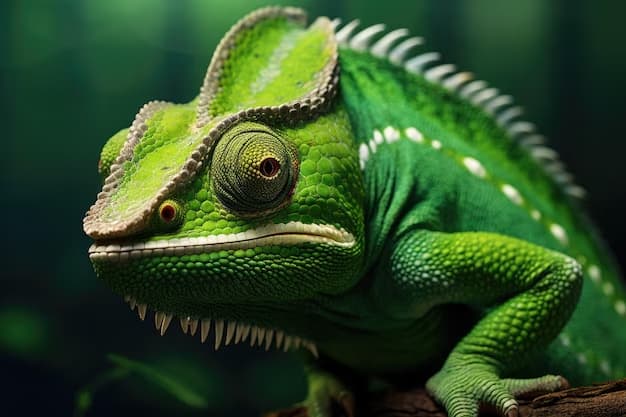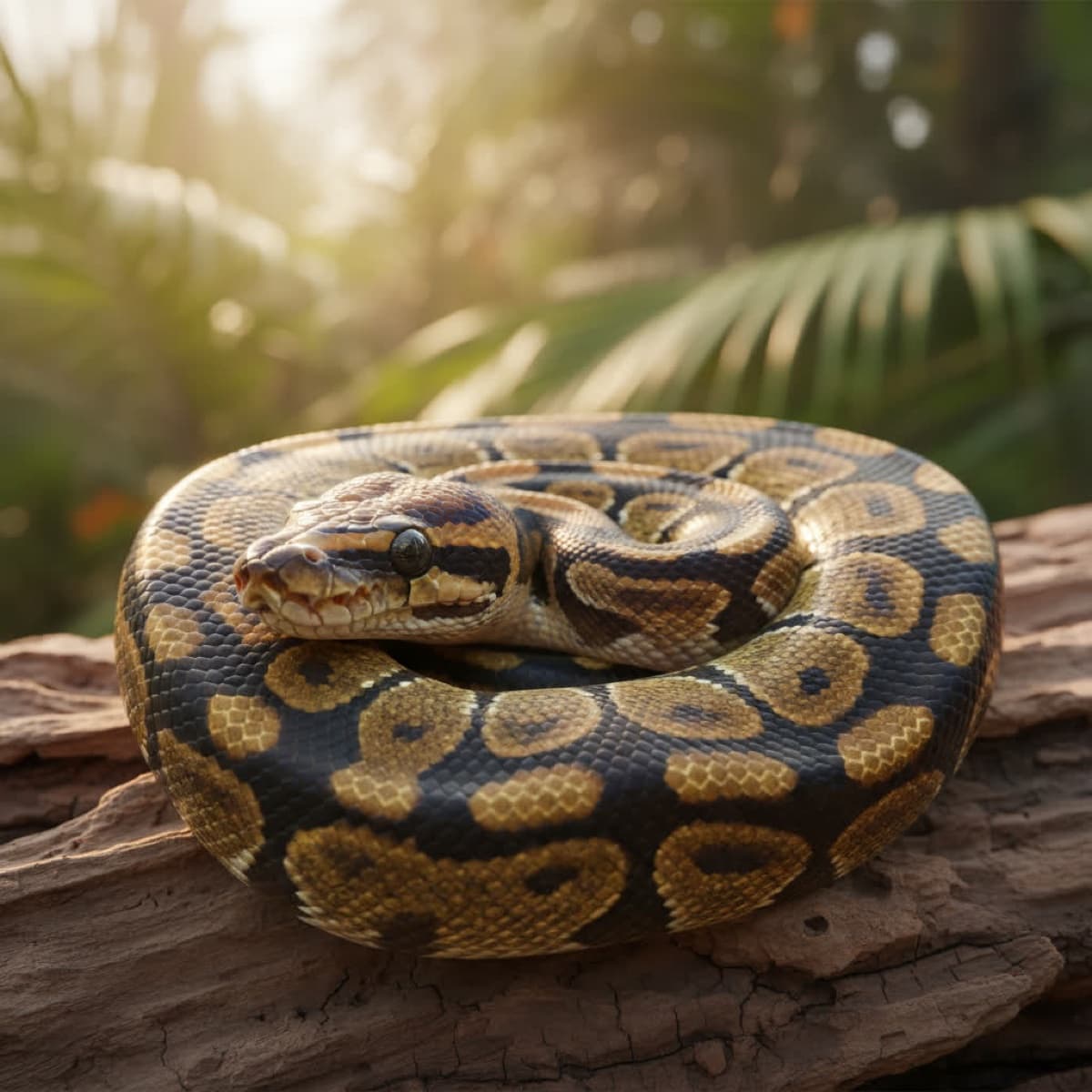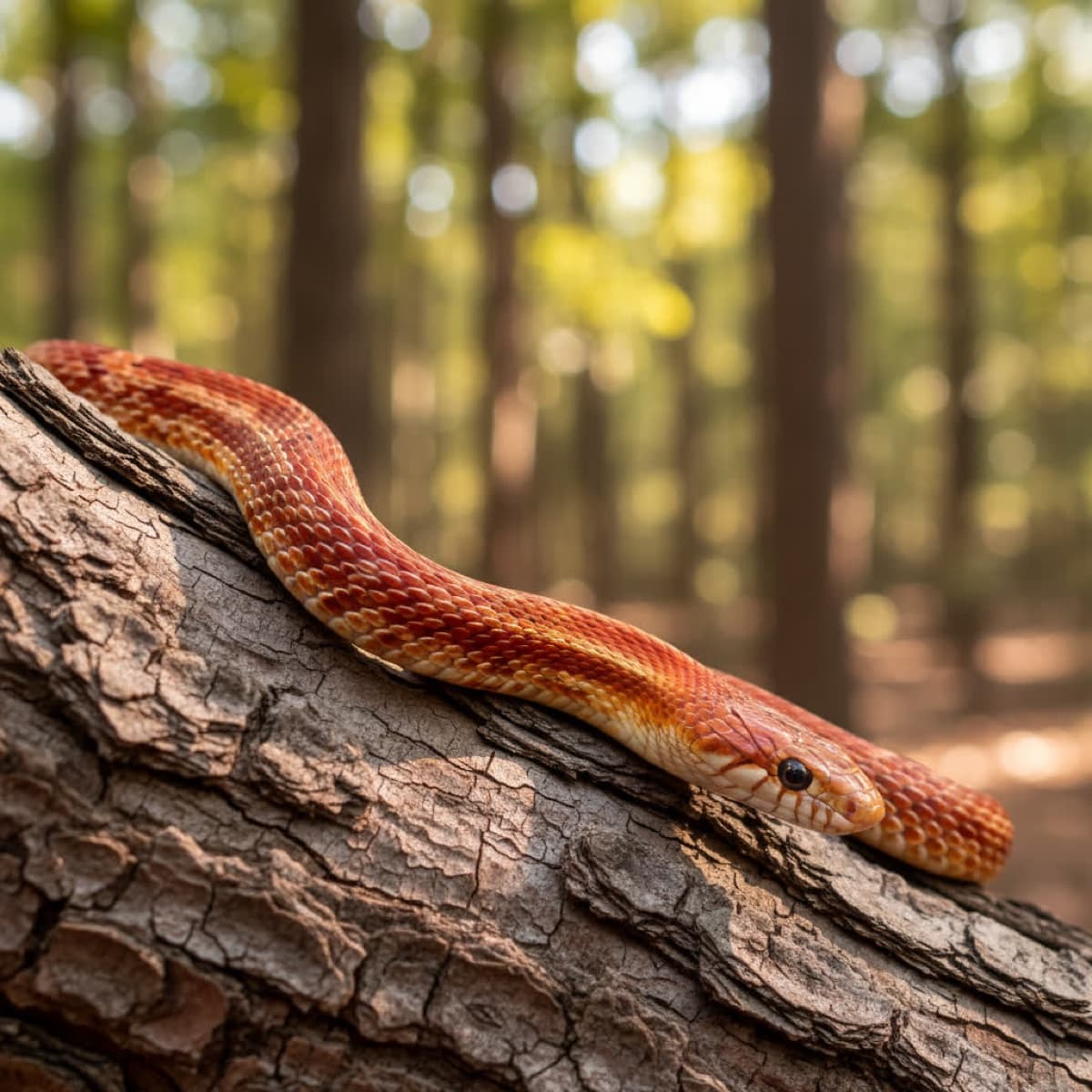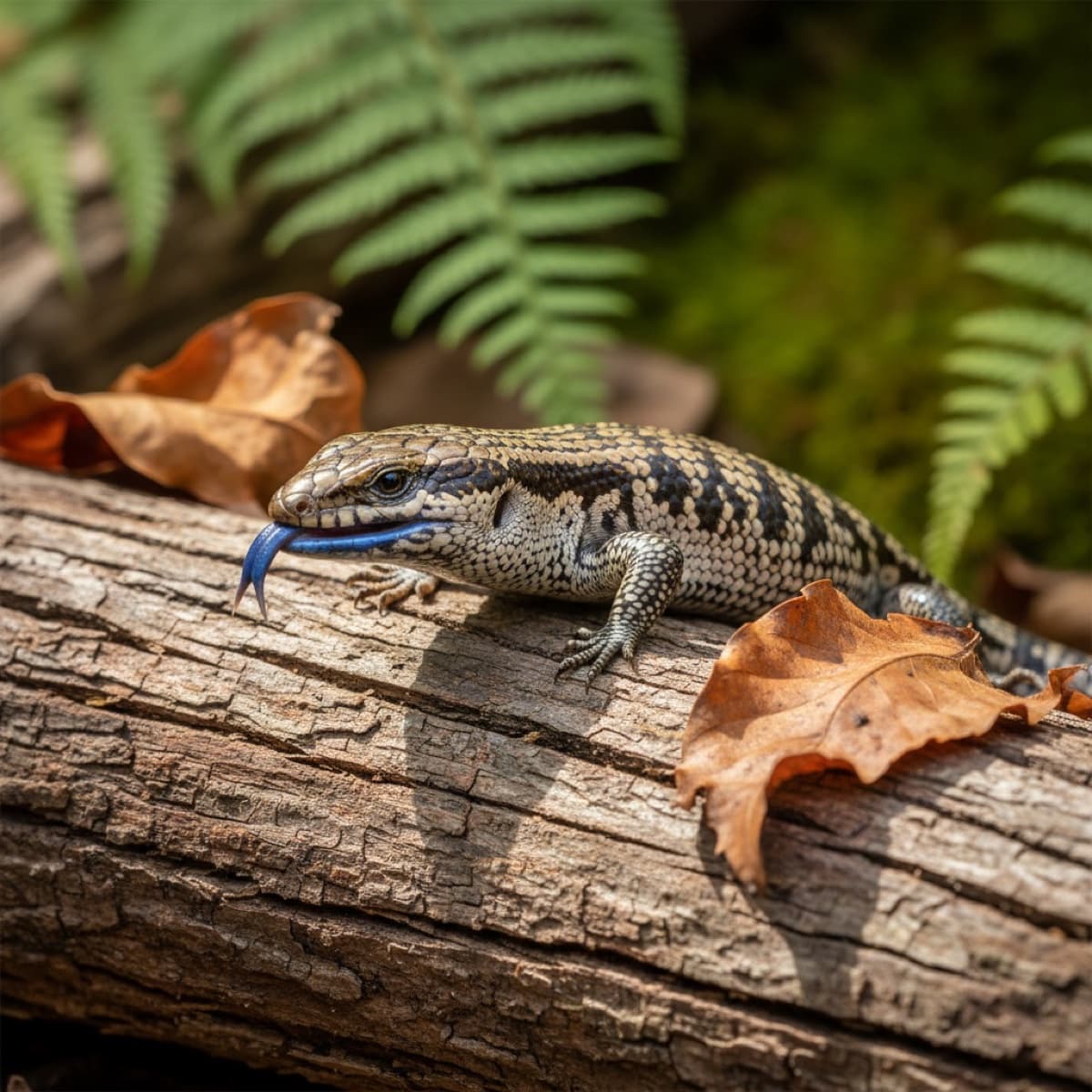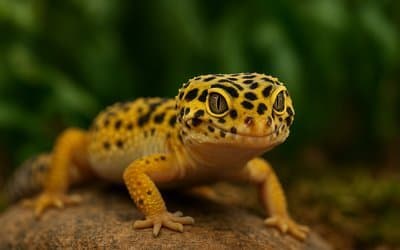
Leopard Gecko
Eublepharis macularius
Hardy, docile geckos perfect for beginners—no UVB lighting required.
Essential Care Requirements
Temperature
Humidity
30-40%
Diet
insectivore
every other day (adults)
Space Required
minimum tank: 90x45x45cm (3x1.5x1.5ft)
adult tank: 120x45x45cm (4x1.5x1.5ft)
Behavior & Temperament
Temperament
very docile
Activity
nocturnal
Social Needs
solitary
Personality
calm, easy-going
Health Considerations
Common Health Issues:
- •impaction
- •stuck shed
- •parasites
Veterinary Care:
annual checkup
Things to Consider
Advantages
- ✓Perfect beginner reptile
- ✓No UVB lighting needed
- ✓Very handleable
- ✓Long lifespan
- ✓Small space requirement
Challenges
- ✗Nocturnal (less active during day)
- ✗Live food only
- ✗Can be shy initially

New Keeper?
Get the Exotic Pet Starter Guide — your UK handbook for correct lighting, diet, and care essentials. Make sure you have everything your pet needs to thrive.
UK-Specific Information
Climate
Adapts well to UK climate indoors
Suppliers
Very widely available
Vet Availability
Most exotic vets treat
Legal Status
No restrictions
Based on UK DEFRA and CITES guidelines.
Ready to Care for a Leopard Gecko?
Find a specialised exotic vet near you for professional advice.
Leopard Gecko Care: Common Questions
Everything you need to know about keeping Leopard Gecko in the UK
Yes, leopard geckos are completely legal in the UK without any licence requirements. They are one of the most popular beginner reptiles with excellent availability from UK breeders and pet shops. No restrictions under UK exotic pet legislation. Leopard geckos are widely supported by exotic vets across the UK and are considered an ideal starter reptile due to their hardy nature and straightforward care requirements.
Leopard geckos need: Warm hide: 32-35°C (90-95°F), Cool side: 24-26°C (75-80°F), Night drop: 21-24°C (70-75°F). Unlike bearded dragons, leopard geckos do NOT require UVB lighting. Use an under-tank heat mat or ceramic heat emitter for heating. Provide a warm hide, cool hide, and moist hide (for shedding). UK ambient temperatures are suitable for the cool side—focus heating on the warm hide only. Always use thermometers to monitor temperatures accurately.
Adult leopard geckos grow to 7-10 inches (18-25cm) in total length. Weight ranges from 45-80g when fully grown. Females are usually smaller than males. They reach full adult size by 12-18 months. Their compact size makes them ideal for UK homes with limited space. Minimum enclosure size is 90x45x45cm (3x1.5x1.5ft), with 120x45x45cm (4x1.5x1.5ft) recommended for adults. Much smaller than bearded dragons, making setup and ongoing care more affordable.
Leopard geckos are insectivores and eat ONLY live insects. Adults eat every other day. Suitable insects available in the UK: crickets, mealworms, dubia roaches, and waxworms (as occasional treats). Dust insects with calcium powder (without D3) at most feedings, and calcium with D3 once a week. Gut-load insects before feeding by giving them nutritious vegetables. Always provide fresh water in a shallow dish. Juveniles eat daily, adults every 2-3 days.
Leopard geckos typically live 15-20 years in captivity with proper care, often longer than bearded dragons. Some individuals have lived past 25 years. This makes them a long-term commitment. Lifespan depends on diet quality, appropriate heating, and prevention of common issues like stuck shed and impaction. Regular veterinary checkups help catch problems early. Their longevity makes them excellent pets for those seeking a long relationship with their exotic animal.
Yes! Leopard geckos are considered THE best beginner reptile. They're docile, easy to handle, don't require UVB lighting, have simple heating needs, eat readily, and are very hardy. They tolerate minor care mistakes better than most reptiles. Compact size means affordable setup costs (£150-£300) and smaller enclosures. Very widely available from UK breeders. Supported by most exotic vets. Nocturnal nature means they're active when you're home in the evening. Perfect first reptile for all ages.
